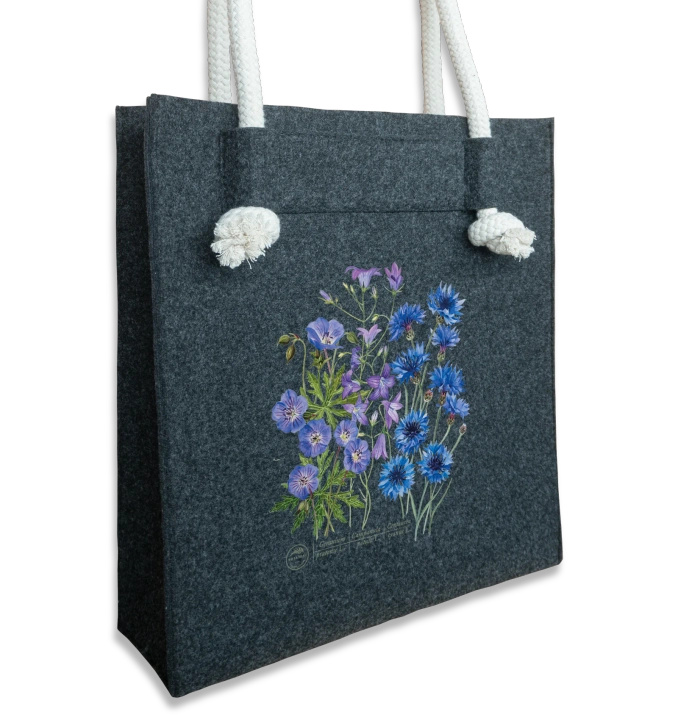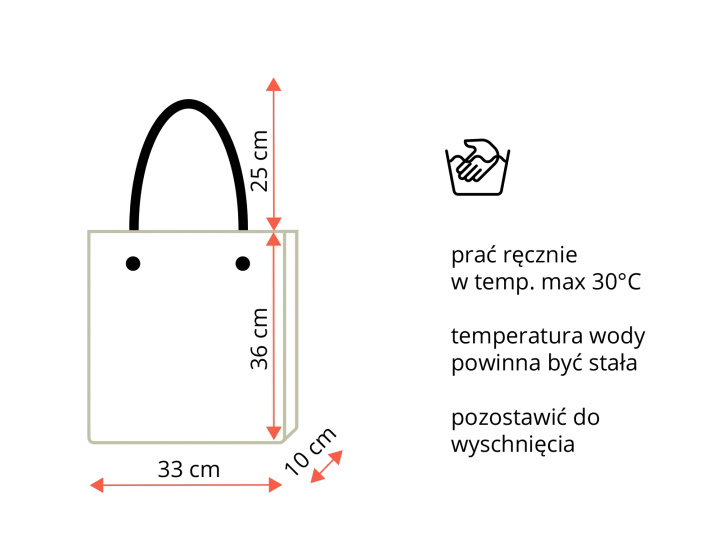Blue meadow — premium felt bag
Blue meadow — premium felt bag
- Durable felt bag with a plant motif for a gift for a plant lover, for shopping. Sewn in Poland. An original gift for a gardener, allotment holder.
Subscription products in your shopping cart
Set one delivery frequency for all subscription products in your cart every:
Subscription products in your shopping cart
Not confirmed by purchase
Score: /5

We will prepare the bag especially for you after you place your order
Carefully made in Poland from high-quality felt, our felt bags combine durability with elegance. The spacious interior with detachable pockets will hold all your essential items, and the sturdy handles ensure comfortable carrying.
Original illustrations inspired by old herbariums, precisely printed, add a unique character. The botaniki felt bag is a stylish and practical wardrobe element for all nature lovers.
- Weight: 800 g/m2
- Felt thickness: 4 mm
- Dimensions: 33 cm x 10 cm x 36 cm
- Sturdy handles
- Detachable inner pockets
- Clear and colorful print
- Made in Poland
Brand
Artwork
Roksana Orfin-Grabowska
Subcategory
Perennials and annuals
Product category
Bags
Felt bags
Bag type
Classic
Colour
Black
Ask a question
If this description is not sufficient, please send us a question to this product. We will reply as soon as possible.
Data is processed in accordance with the privacy policy. By submitting data, you accept privacy policy provisions.
Not confirmed by purchase
Score: /5













